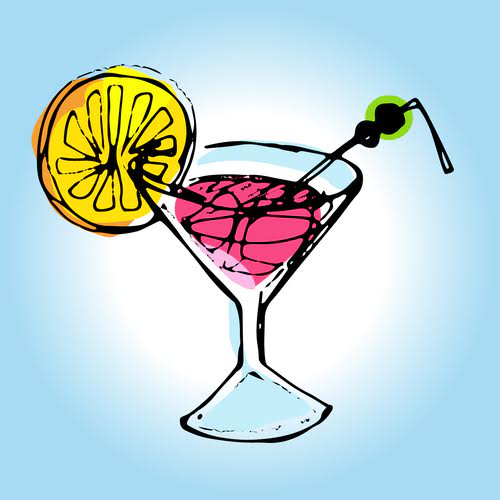Content
Once every member of the intervention team has had a chance to speak, the addict should be presented with detailed suggestions for a treatment plan. The addict can accept the offer then and there, or the team may be willing to give them a few days to weigh their options. The planning group forms a team that will personally participate in the intervention.

An intervention can be the beginning of a more vibrant and wholesome life for your loved one. In most places, it’s legal and socially acceptable for an adult to enjoy an alcoholic drink. But since alcohol’s effects vary so much from one person to another, it’s not always easy to tell when a loved one’s alcohol intake has crossed the line from responsible, social drinking to alcohol abuse. There’s no specific amount that indicates someone has an alcohol use disorder.
Gather an Intervention Team
Facing an alcohol addiction can be a very lonely, scary proposition. Seeing how many friends and relatives are willing to offer support may just be the boost of encouragement the addict needs to begin their turnaround. An intervention can be a very dramatic, emotionally charged encounter.

There are several approaches to substance abuse interventions ; however, there are some general commonalities that apply to different intervention models. These models will typically begin with planning sessions, rehearsals, performing the actual intervention, and then following up on the effects/outcome of the intervention. Interventions can be performed without professional help, but this is not advisable. They may cause the person to seek comfort in alcohol and drugs, and to seek out the company of those who “understand,” such as drinking buddies and drug dealers.
How Interventions Work
Interventions have proven useful in alerting your loved one who is suffering with addiction that everything is not okay, that they are not only hurting themselves, but everyone around them. Drug and alcohol use will cloud anyone’s mind, even the most strong-willed of individuals. Nobody truly knows what how to do an intervention for an alcoholic an addict is going through unless they have lived through it previously. Get professional help from an online addiction and mental health counselor from BetterHelp. Understanding the available treatment options—from behavioral therapies and medications to mutual-support groups—is the first step.
They’ll also find the right type of location to stage the intervention and be on hand to help facilitate constructive conversations and steer the group away from potentially toxic turns in the discussion. Staging an intervention is a very big step, and perhaps not always the best one to try first. Many people prefer addressing an alcoholic one-on-one before moving on to the more extreme measure, for many reasons. Reach out to a treatment provider for free today for immediate assistance. Because of this, you shouldn’t sit back and wait for the condition to get better on its own. In fact, waiting to intervene can cause more damage to a person’s overall health and wellness. People invited to the intervention should include family members, close friends, and, when appropriate, employers or fellow employees.
Drug and Alcohol Interventions: Do They Work?
The good news is that no matter how severe the problem may seem, most people with AUD can benefit from some form of treatment. The person may lash out defensively, verbally, or physically. They may try to harm themselves or others during or after the intervention. They may also shut down completely, crying, screaming, or otherwise attempting to zone out the attempt to help them. The most commonly employed type of intervention is called the Johnson Model, named after the therapist, Vernon Johnson, who pioneered the technique. Planning an intervention can be a daunting task and it’s one that shouldn’t be taken lightly. An intervention is not about how to control the substance user; it is about how to let go of believing you can.
- Each team member will say what specific changes he or she will make if your loved one doesn’t accept the plan.
- This knowledge helps people identify their needs- while also being sensitive and compassionate to the fragile nature of addiction.
- If the answer is a “no,” you need to be prepared to move into the next stage of the intervention process.
- This is an important conversation for everyone involved, and therefore, should be carefully planned.
If she is concerned about the treatment being too far away, you can share that you have researched the facility thoroughly, and this option is best for her needs. Many teens turn to alcohol to relieve stress, cope with the pressures to fit in or succeed at school, self-medicate other mental health issues, or to deal with major life changes, like a move or divorce. Teens today experiment with alcohol earlier and more often than ever before. They’re more likely to binge drink and more vulnerable https://ecosoberhouse.com/ to developing an alcohol use disorder than adults. This may be because the pleasure center of a teen’s brain matures before their capacity to make sound decisions. Whatever the reason for their drinking, though, abusing alcohol can have lasting health effects for teens and often leads to increased risky behavior, such as driving while impaired or having unprotected sex. When someone spends a lot of time drinking , quitting or cutting down can leave a huge hole in their lives.
There is a lack of research to support the use of interventions. From an anecdotal perspective, however, interventions have mixed reviews.
Prognosis of colon complication in necrotizing pancreatitis JIR – Dove Medical Press
Prognosis of colon complication in necrotizing pancreatitis JIR.
Posted: Tue, 10 Jan 2023 16:59:52 GMT [source]
It’s also important to consider who should not be on the intervention team. Someone your loved one dislikes or a person with an unmanaged mental health condition or substance use disorder is usually not a good fit.